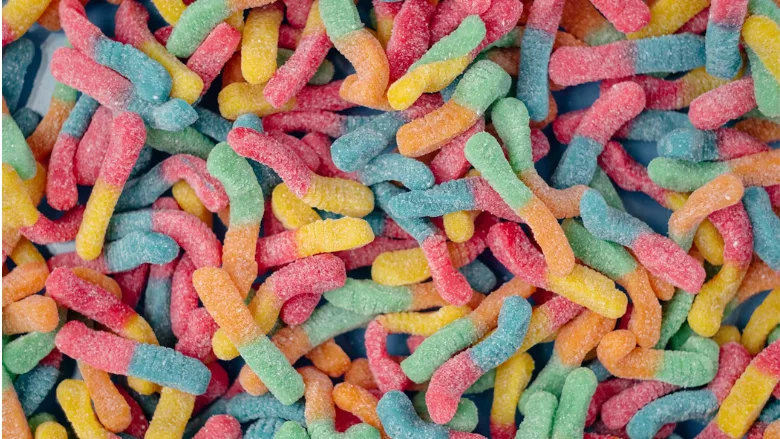Pennsylvania is Latest State to Introduce Food Additives Legislation, While Kentucky Urges FDA to Take Control

Image credit: Karsten Winegeart via Unsplash
Following the wave of state-level legislation on food additives cropping up across the U.S., two bills have been introduced in Pennsylvania to prohibit nine chemicals from being used as food additives in the state, due to potential harms to human health. Additionally, just prior to Pennsylvania’s introduction of its two bills, the state of Kentucky wrote a resolution urging the U.S. Food and Drug Administration (FDA) to mandate and enforce a federal prohibition on U.S. food manufacturers producing or selling food containing harmful ingredients that have been banned by several other countries.
Pennsylvania House Bill (HB) 2116 would ban red dye 3, red dye 40, yellow dye 5, yellow dye 6, blue dye 1, and blue dye 2. The second bill, HB 2117, targets potassium bromate, brominated vegetable oil (BVO), and beta hydroxy acids (BHA). Some scientific literature has linked the chemicals included in the two bills to heightened risk of cancer, hyperactivity and behavioral issues in children, damage to DNA, and harm to the nervous, endocrine, and reproductive systems. State Representatives Natalie Mihalek (R-Allegheny/Washington) and Melissa Shusterman (D-Chester) introduced the bills.
California was the first state to pass legislation banning food additives at the state level with the California Food Safety Act in October 2023, which targets red dye 3, potassium bromate, brominated vegetable oil (BVO), and propylparaben. Since then, Illinois, New York, Missouri, and Washington have introduced similar bills. California also introduced another additive-focused bill in March 2024, looking to ban six food colorants—blue 1, blue 1, green 3, red 40, yellow 5, and yellow 6—as well as titanium dioxide, from being offered in public schools. FDA has been trying to catch up for the past several months, announcing its intent to review several of the chemicals targeted by the state bills and revoking the authorization for BVO in food, as the agency works to modernize its postmarket food chemical safety review process.
Shortly preceding the introduction of Pennsylvania’s two additive bills, Kentucky published a concurrent resolution urging FDA to take strong action on food additives regulation at the federal level. The resolution states that FDA has “allowed food manufacturers in the U.S. to produce foods that are sold and consumed by the American public containing ingredients FDA acknowledges are harmful to humans and that its global counterparts have banned.” Kentucky is asking FDA to prohibit the sale of foods containing harmful additives banned by several other countries, specifically naming several of the additives targeted by a number of the recently introduced state-level bills and calling out the California Food Safety Act. The resolution states “Whereas, red dye 3 and BVO are two of four ingredients that the state of California banned from production and sale… and the EU, Great Britain, China, Japan, and many other countries have banned these harmful ingredients, mandating manufacturers produce foods with alternative and safe ingredients. FDA can mandate that food manufacturers find ways to create its same products without these toxic ingredients, as manufacturers do around the world.”
However, critics of state-level bans on food additives are beginning to speak up. For example, the National Confectioners’ Association (NCA) said in a statement, “Careless rhetoric deployed in this debate would lead consumers to believe the food additives in question are harmful and there is a systematic failure on behalf of the U.S. food safety system—ignoring the fact that FDA is taking action to modernize its review process to meet the growing demands of the agency. Usurping FDA’s authority does nothing but create a state-by-state patchwork of inconsistent state requirements that increase food costs, create confusion around food safety, and erode consumer confidence in our food supply.” NCA calls for a more “science-based” approach to food additives regulation, originating from the federal level.
Looking for quick answers on food safety topics?
Try Ask FSM, our new smart AI search tool.
Ask FSM →







.webp?t=1721343192)

